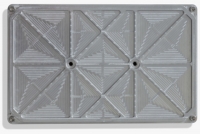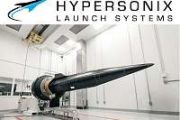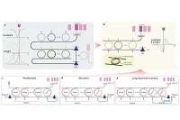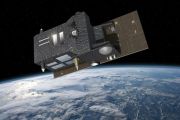The Starbuck-Micro PCDU (Power Conditioning and Distribution Unit) was initially developed under a Swedish national mission and tailored to the requirements of the LEO microsatellite bus InnoSat. This is a state-of-the-art spacecraft architecture designed for innovative low cost research missions. The flexible and modular PCDU is designed for mission life of up to five years in LEO and implements both power conditioning and distribution of the regulated 28 V battery bus, as well an auxiliary isolated 5 V bus. The rigorous testing and extended qualification campaign compliments an innovative design approach that combines COTS and radiation hardened components and optimizes the reliability and performance characteristics of the system.
The Starbuck-Micro design builds on heritage from previous missions with customers such as ESA, NASA, JAXA and other commercial organisations. A number of design features are implemented to achieve optimized reliability characteristics. For example, discrete bipolar design is used for many functions rather than integrated circuits, which enable a thorough part stress design analysis of the system to be performed. Internal supply voltages are current limited with automatic restart and the FPGA design features Triple-Modular-Redundancy (TMR). Worst case analysis, thermal and structural analysis are performed to verify the system functionality at its operational limits.








































































